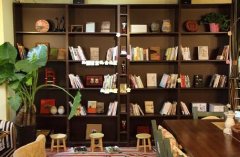A brief introduction to the treatment method of grinding degree and baking degree of Ugandan boutique coffee beans with unique flavor

Dry aroma (1-5): 3.2
Wet aroma (1-5): 3.4
Acidity (brightness)(1-10): 8
Taste (layering)(1-10): 8.5
Taste (body)(1-5): 4
Aftertaste (Residue)(1-10): 8.1
Balance (1-5): 0
Base Points (50):50
Total score (max. 100):85.2
Strength/Main Attributes: Medium Strength/High Oil Content, Rustic Mild
Recommended baking level: full city or full city+
Comparison: A unique African coffee, very similar to Indonesian coffee
Uganda is mostly located in the Central African Plateau, many lakes, an average altitude of 1000--1200 meters, many mountain lakes plateau, known as "plateau water town." The western branch of the Great Rift Valley runs through the western border, and there are many rivers and lakes at the bottom of the valley. Uganda has a Victoria Lake, coupled with many mountains in the territory, making Uganda, although across the equator, but mild climate, suitable for coffee cultivation.
Uganda is the birthplace of Africa's Robusta, just as Ethiopia is the birthplace of Arabica coffee, Robusta coffee was first discovered in Uganda. Uganda has been growing coffee for over 100 years. It is the second largest producer in Africa after Ethiopia. Uganda is also one of the few major African countries committed to organic coffee production.
Uganda's best coffee is mainly grown in the Elgon and Bugisu mountains along the Kenyan border in the northeast and in the Ruwensori mountains in the west.
Coffee cultivation in Uganda is entirely family-based and small-scale. The livelihoods of 25 per cent of the population are linked to coffee production. There are about 500000 farms growing coffee, but mainly producing roberts. Robusta accounts for 90% of coffee production, with the rest becoming Arabica coffee. Arabica and Robusta are harvested from October to February.
Uganda exports coffee mainly to the European Union, with Germany, Italy and other countries as its largest coffee buyers.
Uganda is the country of origin of Robusta coffee, but commercial cultivation of Arabica did not begin here until the early 1900s. Today Uganda still has a large number of wild Robusta coffee trees, which are rare in cities around the world. As a landlocked country, Uganda's large coffee cultivation is often interplanted, where coffee trees are mixed with food crops and rubber trees. Because of the unique natural environment, coffee flowers here on average twice a year, making Uganda the world's largest producer of coffee honey.
Uganda Organic Bugisu
Country of production: Uganda
Grade: HB
Cultivated area: Ergon region, Mbale
Brand: Organic Bugisu
Treatment method: wet treatment
Appearance: 1.8d/300gr, 16-18SCR
Breed: Unknown
Later, when ships replaced sailboats, people drank fresher coffee beans because of shorter delivery times. But people accustomed to old beans are not used to this fresh taste, so they desperately pursue old Java coffee, so that the Indonesian government and some businessmen deliberately store fresh beans in warehouses for one to two years before selling them to consumers. In fact, the acidity of aged Java beans is reduced to nearly zero compared to fresh beans, while the aroma is more intense. Because of the long storage time, the cost increases a lot, and the quantity is limited, so aged Java has always been a hot commodity in the coffee market. In the 1880s, some traders deliberately tampered with fresh Guatemala or Venezuela beans to copy old Java and sell them at high prices. What is intolerable is that 0 traders dye coffee beans in a way that makes them look more like aged java, but there is no doubt that the dyeing chemicals are poisonous.
Uganda is the country of origin of Robusta coffee, but commercial cultivation of Arabica did not begin here until the early 1900s. Today Uganda still has a large number of wild Robusta coffee trees, which are rare in cities around the world. Landlocked Uganda's large coffee plantations tend to be interplanted, where coffee trees interact with food crops and rubber trees because of the natural environment. Coffee here flowers twice a year on average, making Uganda the world's largest producer of coffee honey.
This coffee is produced in Uganda's Mount Elgon region, between 1600 and 1900 meters above sea level. Balanced acidity and rich oil are the characteristics of this coffee. It tastes mild and rustic, with a papaya flavor.
Important Notice :
前街咖啡 FrontStreet Coffee has moved to new addredd:
FrontStreet Coffee Address: 315,Donghua East Road,GuangZhou
Tel:020 38364473
- Prev

A brief introduction to the cultivation of plain and mild boutique coffee beans in Uganda, geographical location, climate and altitude
Most of Uganda is located in the Central African Plateau, lakes, with an average elevation of 10001200 meters. There are many lakes and plateaus in the mountains, which are known as plateau water villages. The western branch of the East African Rift Valley runs through the western border, with many rivers and lakes at the bottom of the valley. Uganda has a great Victoria lake, coupled with the high mountains, which makes Uganda a mild climate suitable for growing coffee, although it spans both sides of the equator. Uganda is Africa.
- Next

A brief introduction to the description of the flavor and aroma characteristics of Ecuador's boutique coffee beans with fresh taste
In addition, creative coffee made from Ecuadorian coffee beans with unique flavor is also popular with consumers. In 2014, Mr. Veniso, the champion of Ecuador Coffee Competition, won the first place in Ecuador Coffee Competition with creative formula. One espresso with mint grass from the Amazon region tastes fresh and unique, while the other adds
Related
- Detailed explanation of Jadeite planting Land in Panamanian Jadeite Manor introduction to the grading system of Jadeite competitive bidding, Red bid, Green bid and Rose Summer
- Story of Coffee planting in Brenka region of Costa Rica Stonehenge Manor anaerobic heavy honey treatment of flavor mouth
- What's on the barrel of Blue Mountain Coffee beans?
- Can American coffee also pull flowers? How to use hot American style to pull out a good-looking pattern?
- Can you make a cold extract with coffee beans? What is the right proportion for cold-extracted coffee formula?
- Indonesian PWN Gold Mandrine Coffee Origin Features Flavor How to Chong? Mandolin coffee is American.
- A brief introduction to the flavor characteristics of Brazilian yellow bourbon coffee beans
- What is the effect of different water quality on the flavor of cold-extracted coffee? What kind of water is best for brewing coffee?
- Why do you think of Rose Summer whenever you mention Panamanian coffee?
- Introduction to the characteristics of authentic blue mountain coffee bean producing areas? What is the CIB Coffee Authority in Jamaica?

